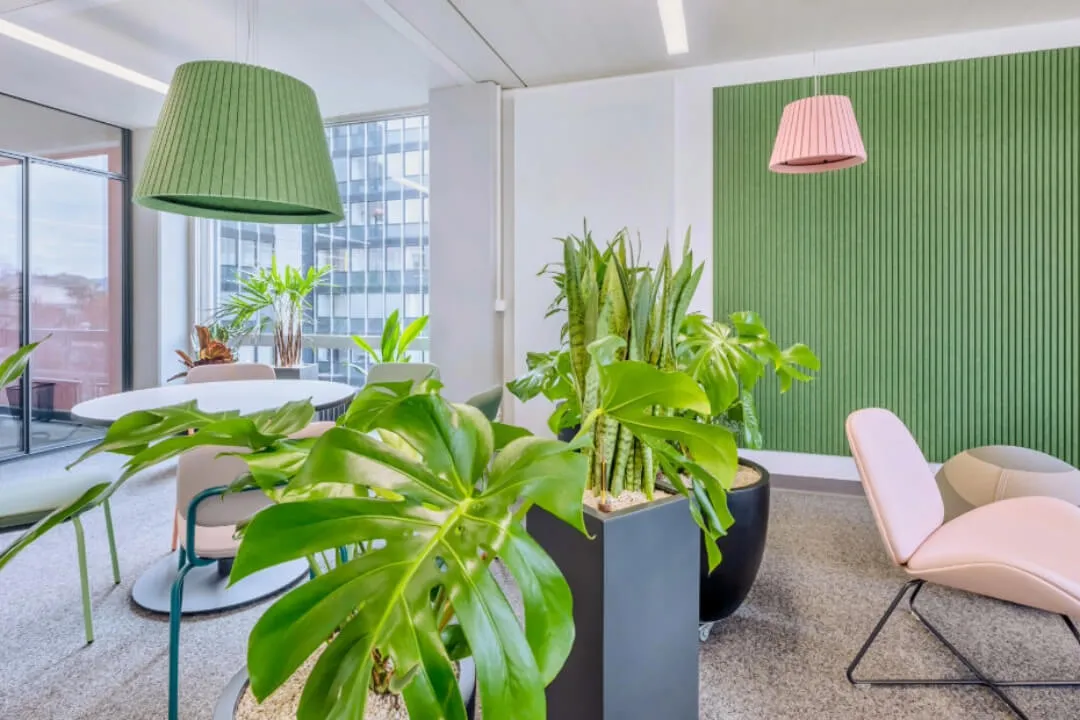Working from home? Working in an office isn't that bad!
Ontdek de voordelen van werken op kantoor en waarom het een onmisbaar onderdeel blijft voor het bevorderen van productiviteit, teamwork en welzijn op de werkplek.

Three misconceptions that make everyone think working from home is so great!
There are many people who think that the office is going to disappear as a workplace. Partly due to the increasing use of WiFi and laptops, many organizations are embracing working from home. And during the pandemic, we're working from home as much as we can. For a while, that also seemed to be going very well. But after many months of working from the kitchen table from video call to video call, the novelty (and fun) is over.
Three common misconceptions
There are three common misconceptions about working from home that make everyone think working from home is great. Here are the three misconceptions:
- It's cheaper to let people work from home
- People are just as (or more) productive at home as they are in the office
- Home workers have a better work-life balance

Misconception #1 It's cheaper to let people work from home
It's true that reducing costs for real estate and other related workplace facilities can save money. But there are hidden costs to consider before sending people home in droves.
The office has the potential to provide everyone with the space and tools they need to get their work done. But when working from home, many people have to deal with small spaces, family, and roommates, combined with poor equipment and technology.
A Steelcase study shows that 75% of directors or higher always or almost always work at a desk at home, while only 46% of employees do. And in major metropolitan areas around the world, people often struggle with small living spaces that are shared with others, which can make working from home difficult. Research from Beijing's Cheung Kong Graduate School of Business found that more than half of employees said their efficiency declined while working from home.
Misconception #2 — People are just as (or more) productive at home as they are in the office
That depends on how you define productivity. Some forms of work are easy to do at home. But the real productivity of knowledge workers in terms of creativity, innovation, and transformation is really difficult to measure in the short term — especially during a pandemic — and incredibly difficult to achieve virtually. How does your organization define and measure what it means to be productive? Routine work can be done at home. Brilliant ideas can't be planned. The creative process is difficult in a series of short online meetings. People who are “physically” together and build on each other's ideas while working with the same information can come up with ideas and solve problems more easily. Informative and evaluative collaboration can easily take place via video. But creative collaboration is the most challenging and hardest to achieve online under all circumstances. In a fully virtual environment, people have trouble having a “normal” conversation and reading body language while sharing content. Both are crucial for innovation.
Misconception #3 Working from home has a better work-life balance
Of course, working from home has advantages: no commuting, comfortable clothes and more time with family or pets. But it also comes with disadvantages. Extreme work-from-home strategies can even make it harder to separate work from home and stress employee wellbeing. It's tempting to work from home from early in the morning until late at night. Rituals, such as commuting to work or drinking coffee at the cafe, help create important boundaries between work and life.
What day is it really today?
Do you regularly ask yourself: “What day is it actually today?” Then there may be temporal disintegration. This is a phenomenon where people are unable to retain and organize information about time, how to do things in sequential order, or what happened. Without place-related rituals, such as driving to work or being with others, people struggle to distinguish one day from another. Without a physical separation between work and life, it becomes difficult to set boundaries. For people who always work from home and stay indoors, the days melt together. There is no difference between the working week and the weekend anymore and you lose the sense of time and what time it is. If you regularly don't know what day it is, you're not alone: many people search “what day is it” on Google during corona.

Decreasing revenues
According to research by WKSpace, it shows that at some point, people reach a point of declining returns when they work from home. The research suggests that pleasure, motivation, and connection all began to decline after just five weeks of working from home. And therefore also productivity.

A new approach is needed
The workplace is key to driving growth, building an organizational culture, and driving the kind of innovation that drives the global economy.
But that does not mean that we are returning to the office of the past. Nor will we all continue to work from home. A new approach to the workplace is needed — one that's attractive and safe for employees and smart for the company.
Do you want to know more about the new office environment and the multi-space approach? Then take contact with us. Our specialists are happy to help you.
Share this:
Transform your environment into the best version to work, learn or live in
Know what options are available for your situation in 30 minutes.



.webp)


